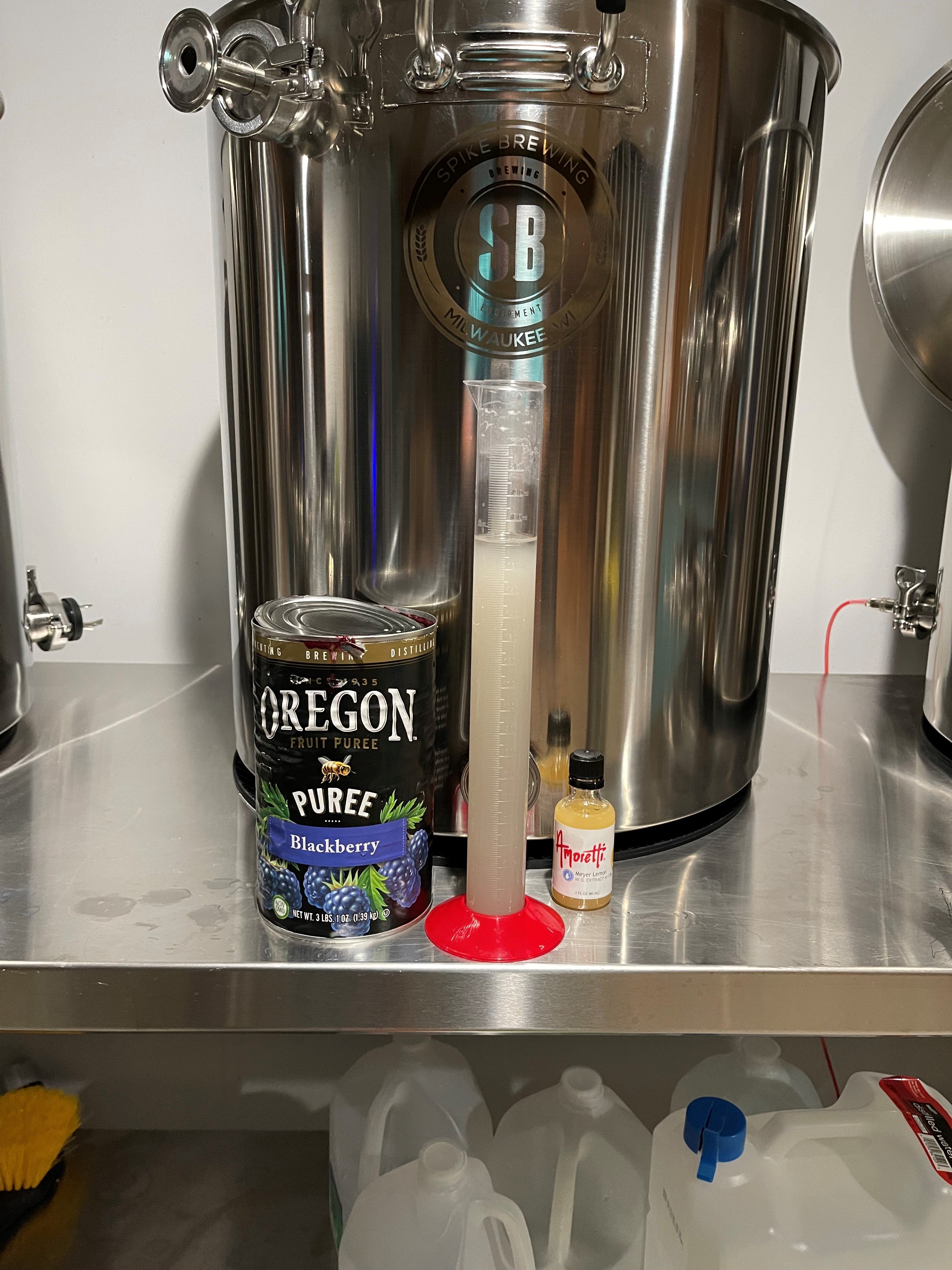There's been a ton of Seltzer threads and they seem to be on-going so I didn't want to hijack someone else's questions.
We've never been big fans of the seltzers, just not our thing. However, we had one that was done a bit differently by More Brewing in Huntley, IL. We loved it.

It's a blackberry lemon fruited seltzer using real fruit puree. I picked the brewers brain on how they did it and I was about to dive into it head first without even checking on the forum, but I checked HBT and saw a lot of people have problems with some of the methods they used. So I'm curious on thoughts here...
1. More used a soft water profile, similar for NEIPAs and they used corn sugar (seems to be a standard approach so far).
2. The brewer I spoke with said they used a lot of yeast nutrient. He said before adding fruit, it almost had a bready flavor from the nutrient but the fruit covered it up. (Never heard this before. Is this what you guys experience?)
3. I was informed that they fermented with champagne yeast. This is the part the wife and I loved. It had a nice dry finish like a champagne would. We loved it. (We want to emulate this as well but have heard that a lot of people have had problems with champagne yeast and getting it to ferment out? This still the case?)
4. In regards to the fruit, he told me it was approx. 23% fruit puree per barrel. He said on a home brew scale, he'd go 4 gal of seltzer to 1 gal fruit puree. (Nothing out of the ordinary here...)
5. Once fruit is added, I was told they added potassium sorbate to prevent refermentation of the fruit. (I've done this before as well so nothing new here, just need to figure out dosage).
Thanks in advance for your thoughts and feedback.
We've never been big fans of the seltzers, just not our thing. However, we had one that was done a bit differently by More Brewing in Huntley, IL. We loved it.

It's a blackberry lemon fruited seltzer using real fruit puree. I picked the brewers brain on how they did it and I was about to dive into it head first without even checking on the forum, but I checked HBT and saw a lot of people have problems with some of the methods they used. So I'm curious on thoughts here...
1. More used a soft water profile, similar for NEIPAs and they used corn sugar (seems to be a standard approach so far).
2. The brewer I spoke with said they used a lot of yeast nutrient. He said before adding fruit, it almost had a bready flavor from the nutrient but the fruit covered it up. (Never heard this before. Is this what you guys experience?)
3. I was informed that they fermented with champagne yeast. This is the part the wife and I loved. It had a nice dry finish like a champagne would. We loved it. (We want to emulate this as well but have heard that a lot of people have had problems with champagne yeast and getting it to ferment out? This still the case?)
4. In regards to the fruit, he told me it was approx. 23% fruit puree per barrel. He said on a home brew scale, he'd go 4 gal of seltzer to 1 gal fruit puree. (Nothing out of the ordinary here...)
5. Once fruit is added, I was told they added potassium sorbate to prevent refermentation of the fruit. (I've done this before as well so nothing new here, just need to figure out dosage).
Thanks in advance for your thoughts and feedback.







